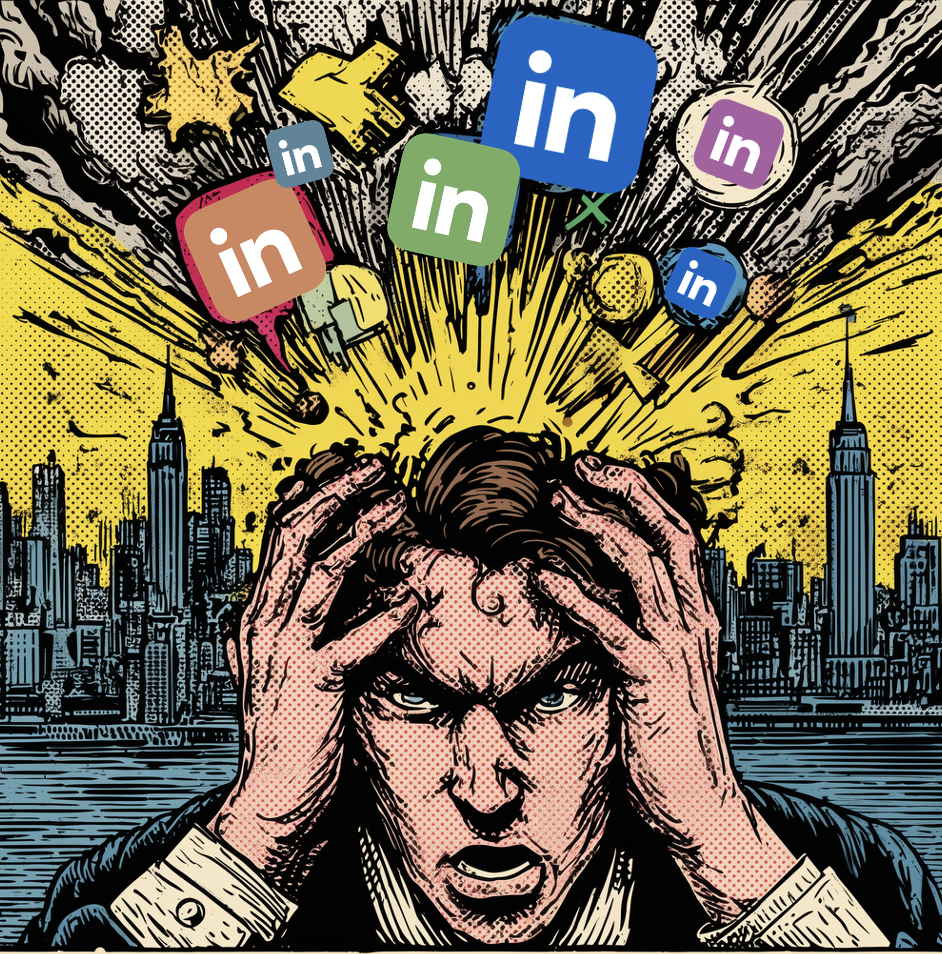
Guest post by Richard Bliss
Last week I read a new analysis of LinkedIn’s latest engineering research papers by Trust Insights. After spending days going through it, I’m not exaggerating: everything we thought we knew about LinkedIn changed in mid-2024, and almost nobody noticed.
Not an update. Not a tweak. A complete teardown and rebuild.
Here’s what happened:
LinkedIn ripped out their entire ranking system and replaced it with a foundation model AI that reads and comprehends your content like an expert consultant would.
The old system counted signals. “Comment = 15 points, like = 1 point, keyword detected.”
The new system reads your text, understands context, and makes expert judgments about substance and relevance.
This means all those tactics we learned are obsolete:
Post at 7:43 AM on Tuesday? Doesn’t matter. Keyword stuffing? The AI detects and penalizes it. Engagement pods? Flagged. Generic thought leadership? Dead on arrival.
What works now: Clear communication. Genuine expertise. Strategic engagement with industry leaders.
The LinkedIn engagement paradigm
But here’s the part that blew my mind.
Your recent LinkedIn engagement (your last 5-10 actions) is incorporated into a real-time “prompt” that the AI reads before deciding what to show you next.
You’re literally training your own algorithm through every click.
Every comment you leave becomes a training example: “This is what I find valuable.” Every post you engage with teaches the system: “This is the conversation I belong in.”
This is called In-Context Learning, and it’s why some people’s content suddenly reaches exactly the right audiences while others are shouting into the void.
The practical impact
Your profile is now a narrative document, not a keyword repository. The AI reads it like an executive summary before every ranking decision.
Your engagement strategy matters more than posting frequency. Quality signals from strategic interactions outweigh volume.
The first sentence of everything you write carries exponentially more weight than anything buried later (technical limitation called “Lost-in-Distance”).
You can prime the algorithm right before you post by strategically engaging with related content 10-15 minutes beforehand.
I know some of you are crushing it on LinkedIn already. But many of you are frustrated because great content isn’t getting seen.
This shift explains both.
The people winning aligned their approach with how this reasoning engine actually works. The people losing are still using the old playbook.
Authority in context
This paradigm validates what I’ve been teaching for years. LinkedIn is a business platform where authentic professional communication wins. That philosophy is now literally encoded in the technology.
But the technical details of HOW it works changed so dramatically that even correct instincts need new tactical applications.
Quick example: I’ve always taught “the currency is in the comments.” That’s still true, but now we know WHY. Thoughtful comments on expert content create textual training data that associates you with that expert’s community in the Economic Graph. The AI literally starts showing your content to people interested in that expert’s topics.
Aspirational networking with algorithmic leverage.
I’m doing a deep dive on all of this because this is the single biggest opportunity for professional visibility in the last decade.
If you understand this shift, you have a 12-to-18 month window to dominate visibility in your space while everyone else is still using engagement pods.
If you ignore it, you’ll wonder why your competitors are suddenly everywhere while you’re invisible.
This isn’t about gaming anything. It’s about understanding how an intelligent system evaluates professional value and aligning your communication accordingly.
I’m not prone to hype anything. This is real, documented in LinkedIn’s own research papers, and it fundamentally changes the game.
I’m genuinely excited by these changes and the impact it will have. Especially as the ‘influencers’ have been screaming that they are being shutdown on LinkedIn, which is great. Because they have been gaming the system to inflate their image, and I get so angry I get when I come across them.
Richard Bliss